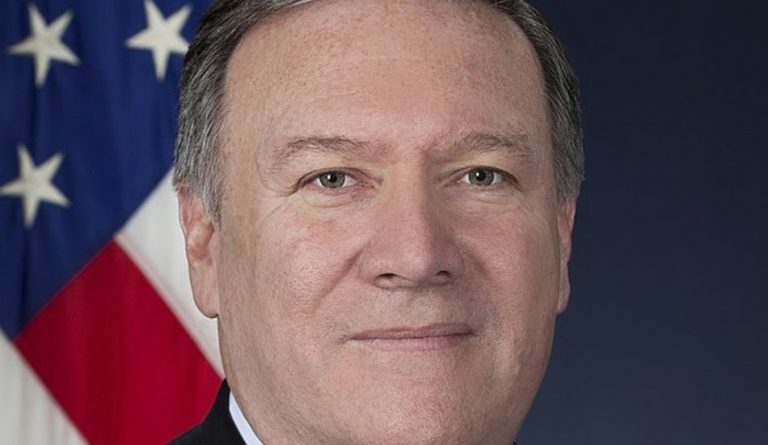On Trump’s last day in office, Beijing placed sanctions on 28 people from his administration. The communist regime argued that these officials disrupted China-U.S. relations and violated “China’s sovereignty.” The Biden administration NSC spokeswoman Emily Horne called the sanctions cynical.
“Imposing these sanctions on Inauguration Day is seemingly an attempt to play to partisan divides… Americans of both parties should criticize this unproductive and cynical move. President Biden looks forward to working with leaders in both parties to position America to out-compete China,” she said in a statement.
The sanctioned people include influential figures like Mike Pompeo, Peter Navarro, and Robert O’Brien, all of whom have taken a strong stance against communist China on various issues like human rights, espionage, and unfair trade practices. China’s sanctions came a day after Pompeo called the Chinese Communist Party’s (CCP) persecution of Uyghurs a “genocide.”
The sanctioned individuals, as well as their family members, are now banned from entering mainland China, Hong Kong, and Macau. The ban will apply to any businesses or other entities associated with them. Companies operating in communist China with connections to any of the 28 people will be restricted from doing business there.

Navarro called the sanctions “a badge of honor.” He said they come from a regime that has infected the world with the CCP virus and has cost America more than 5 million manufacturing jobs. Republican Michael McCaul from Texas called the sanctions a brazen attempt to silence officials seeking to make the CCP accountable for its human rights violations in Xinjiang and Hong Kong.
Success
You are now signed up for our newsletter
Success
Check your email to complete sign up
Republican Jim Risch pointed out that the Chinese sanctions are a test of resolve for the Biden administration to see whether they will continue Trump’s aggressive opposition of communist China. Republican Tom Cotton from Arkansas believes that the sanctions are a “shot across the bow” for Biden’s national security team. All three Republicans called on the Biden administration to give an appropriate response to communist China.
When Trump departed from office on Jan. 20, Chinese state media celebrated. The propaganda outlets accused Trump of being a “negative and destructive” force, exclaiming “good riddance.” Punishing the 28 officials seems to be retaliation by the CCP, since Trump and his administration never compromised with communist China, including issues in business, defense, or the viral outbreak.
Chinese media has also expressed hope that Biden would bring back the soft Obama-era approach toward Beijing. The propaganda outlets said that’s the right path to a strong bilateral relationship. The CCP-backed Global Times stated that Biden is “more rational” than Trump.
“After four years of mobilization by the Trump administration, the US society’s perceptions and attitudes toward China have changed a lot. The idea of a hard-line containment against China is popular in the US… During the past four years, China-US relations have deteriorated. All conflicts have been provoked by Washington. Beijing has merely been responding and making countermoves… Trump’s China policy has been a failure. This is evident from the comparison of the two countries’ development situation as he stepped down Wednesday. The restart of China-US cooperation is more in line with the US’ overall interests,” the article states.
Follow us on Twitter or subscribe to our email list
















